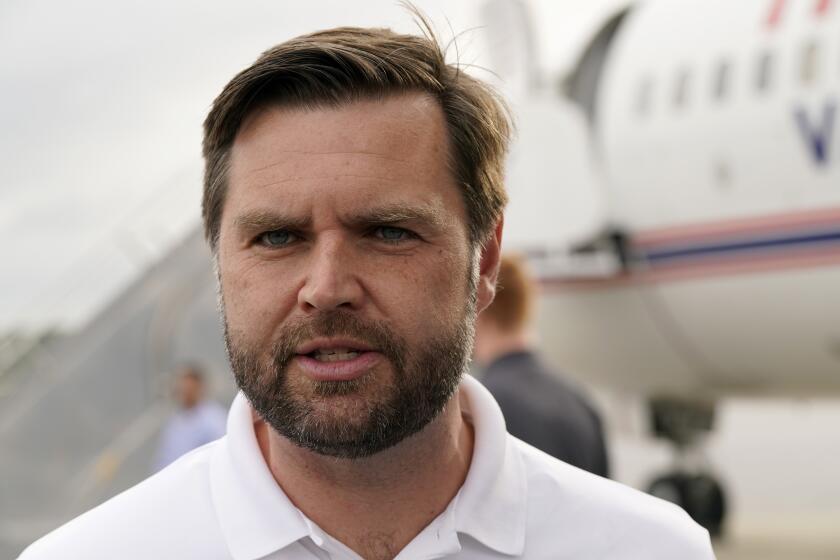Readers React: Don’t call death with dignity ‘suicide’
To the editor: Although I agree wholeheartedly with Dr. Ira Byock’s recommendations for amendments to the proposed End of Life Option Act in California, I strongly disagree with his emphasis that “death with dignity” is about permitting suicide, and that “suicide” is the word we must use in describing it. (“We should think twice about ‘death with dignity,’” Op-Ed, Jan. 30)
I am a mental health professional who regularly deals with painful and frightening issues related to suicide. In most cases, I am called upon to address suicide as I have always understood it: the ending of a life that does not need to be ended.
Ending one’s life because a girlfriend or spouse loves someone else, because someone feels depressed about losing a job or because one is suffering from a disabling injury is suicide. In these cases, life can still continue and be rewarding.
To have a meaningful discussion of this difficult issue, we must have new terminology that makes the distinction clear between suicide and ending one’s life because of terminal illness.
Participating in the decision to have assistance in advancing a painful end that is irrevocably in progress is not suicide. It is an end-of-life decision.
Sarah Edwards, Pine Mountain Club, Calif.
..
To the editor: Byock is exactly right: Physician-assisted suicide is the wrong response to difficult problems.
Rather than affirming individual autonomy, it is a concession to fear and depression. You have no autonomy and no choice when you are dead.
An honest discussion of the recently introduced End of Life Option Act ought to include why proponents feel the need to use euphemistic language and why the most desperately ill feel so panicked when the science exists to provide them with good symptom relief and control until the very end.
As a society, our response to a terrible diagnosis ought to be a marshaling of assistance, not a cheerleading squad for a fast exit.
Elizabeth Hanink, Inglewood
..
To the editor: Byock writes that dying shouldn’t be so brutal. Every doctor and nurse agrees. I also agree that doctors can do a better job at relieving suffering at ethe nd of life.
But I do not agree that legalizing end-of-life decisions that bring about death could ever cause the erosion of social morality, as Byock suggests. Having practiced medicine for 38 years, I believe quite the opposite.
Let’s admit that there are situations where insurmountable pain exists before death. Respecting the dignity of that person must include respecting his last request. There is no dignity without that choice. And there is no choice without legalizing a lethal prescription.
The California Legislature, by introducing SB 128, will get a lot of passionate advice on both sides. Maybe it comes down to this question: What would you choose for yourself in this worse-case scenario?
Barry Orvell, MD, Vacaville, Calif.
..
To the editor: Byock writes, “People who are disabled or facing life’s end can be cared for in ways that allow them to feel respected, worthy and valued.”
The operative word here is “can.” But do most people receive the care that Byock advocates?
The reality for most people, especially those without family able or available to care for them, is nursing home care. I assume Byock has seen his share of these, and I would ask him whether he would describe these places in those terms.
Michael X. Dean, Santa Barbara
Follow the Opinion section on Twitter @latimesopinion
More to Read
A cure for the common opinion
Get thought-provoking perspectives with our weekly newsletter.
You may occasionally receive promotional content from the Los Angeles Times.










